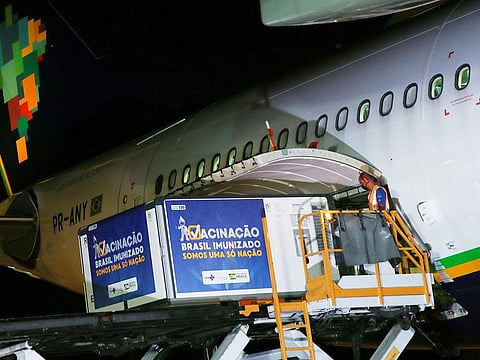Governments' role and size will matter in post COVID-19 economies
Status quo cannot be maintained if it means adding more strains to state finances

I still remember being asked for the first time whether I follow the Keynes school of thought... or the Hayek school. I did not have an answer at the time, neither do I have an answer now. Fact is that no one should.
Put simply, choosing between one school or the other is about what role a government must play in its economy. If one is to go with Keynes’ views, a government is the main saviour of an economy in times of crisis. Hayek’s views are not the exact opposite.
Rather, that the role of a government in an economy must be limited and that the market must be allowed to function efficiently.
Which way to take
So, what should a government’s role be in an economy? And how does such a role change when faced with a COVID-19-like crisis? To answer this question, it must first be understood what stage of development an economy is at.
This depends on the country’s perception of its own development, as well as the perception of other countries. The classification by the World Trade Organisation (WTO) is based on the former, while the intention and interest to impose anti-dumping duties and tariffs - above and beyond what is allowed by the WTO - is based on the latter.
Degree of development
Either way, a government’s role in its economy is, conventionally speaking, supposed to be inversely correlated with its level of development. That is, the less developed an economy is, the bigger the role of a government is expected to be to create jobs and generate economic activity.
The more developed an economy is, the lesser the role of a government is expected to be in its economy. This is also subject to how vibrant an economy’s private sector is, including the share of small and medium enterprises in it.
In short, the role of a government must change from market player to market regulator and facilitator as its economy becomes more developed. The only problem here is that there are no set ground rules - i.e., specific milestones - by which a government must curb its involvement. There are, nevertheless, signs that show whether or not a government is overplaying its hand in its economy.
Jobs focussed
One, the presence of oversized and inefficient state-owned enterprises that compete with the private sector over limited market share. Two, public and semi-public sectors are the largest employers in the economy, and are expected to create jobs in the future too.
In many cases, a government oversteps in its economy until the above-mentioned signs can be seen all over it, a point after which economic reforms are nothing but painful. This makes it harder to stir the economy towards being market-oriented... and to curb government’s role in it.
COVID-19 is the exception to the rule. In fact, COVID-19 and its accompanying economic crisis made resetting a government’s role more attainable, if not easier. How?
Start all over again
First, it levelled the economic playing field for all countries theoretically and, to a certain extent, practically. With that, what set economies apart were the resources at each government’s disposal, as well as how quickly actions were taken to salvage the economy and to reignite growth.
Second, COVID-19 was, in a way, an economic reset that even the 2008 Global Financial Crisis could not bring about. This means that governments are more able to go back to the drawing board and to re-plan their roles in their economies moving forward.
Taken together, COVID-19 has made it extremely expensive for governments with oversized roles in their economies to bail them out. Meanwhile, governments with acceptable roles in their economies were more able to act and intervene - not to safeguard their market interests, but to ensure the survival and the longevity of their private sector.
New realities, new roles
Be that as it may be, COVID-19 has made it clear that an economy’s stage of development only matters as to what existing role there is for a government in its economy. Thus, what can be done to adjust the economy to the new normal.
The larger the role of a government is, the harder it is to recalibrate the economy post COVID-19. In other words, the pandemic succinctly exposed what a government’s role should be in its economy versus what is it.
The last thought that I want to leave you with: Were governments with smaller roles in their economies better positioned to handle the pandemic?

- Abdulnasser Alshaali is a UAE based economist.
Sign up for the Daily Briefing
Get the latest news and updates straight to your inbox





